- Home
- Blake Pierce
The Perfect Block Page 5
The Perfect Block Read online
Page 5
“Sure,” Jessie replied.
“If I text you the address, can you be here in thirty minutes?” he asked.
“I can be there in fifteen.”
CHAPTER SEVEN
When Jessie pulled up in front of the mansion on Lucerne Blvd. at 2:29 a.m., there were already multiple police cars, an ambulance, and a medical examiner’s vehicle out front. She got out and walked toward the front door, trying to look as professional as possible under the circumstances.
Neighbors stood on the sidewalk, many wrapped up in robes to protect against the chill of the night. This sort of thing wasn’t typical for a wealthy neighborhood like Hancock Park. Nestled between Hollywood to the north and the Mid-Wilshire district to the south, it was an enclave of old money Los Angeles; or at least as “old money” as anything in a city so unconcerned with historical tradition could be.
The people who lived here weren’t so much the movie stars or Hollywood moguls one might find in Beverly Hills or Malibu. These were the homes of the generationally wealthy, who might or might not actually work. If they did, it was often merely to avoid boredom. But they didn’t have to worry about being bored tonight. After all, one of their own was dead and everyone was curious as to who.
Jessie felt a bit of thrill as she walked up the stairs to the front door, which was marked off with yellow police tape. This was the first time she’d arrived at a crime scene unaccompanied by a detective. And that meant it was the first time she’d have to show her credentials to access a restricted area.
She remembered being so excited when she’d first gotten them. She even practiced flashing them to Lacy a few times back at the apartment. But now, as she fumbled through her coat pocket, trying to find them, she felt surprisingly nervous.
She needn’t have been. The officer at the top of the stairs barely glanced at them as he pulled back the police tape and let her pass.
Jessie found Hernandez and another detective standing just inside the foyer of the house. The younger man looked like he’d drawn the short straw. Detective Reid’s seniority must have allowed him to beg off this call. Jessie wondered why Hernandez hadn’t pulled rank too. He saw her and waved her in.
“Jessie Hunt, I don’t know if you’ve met Detective Alan Trembley. He was the detective on call tonight and he’ll be working the case with me.”
As Jessie shook his hand, she couldn’t help but notice that, with his unkempt curly blond hair and glasses halfway down the bridge of his nose, he looked as scattered as she felt.
“Our victim is in the pool house,” Hernandez said as he started walking, leading the way. “Her name is Victoria Missinger. Thirty-four years old. Married. No children. She’s in a small, hidden nook off the main room, which may help explain why it took so long to find her. Her husband called in this afternoon, saying he hadn’t been able to reach her for hours. There was some concern that it might have been a ransom situation so a full house search wasn’t done until a few hours ago. Her body was found by a cadaver dog.”
“Jesus,” Trembley muttered under his breath, making Jessie wonder just how experienced he was to be set off by the notion of a cadaver dog.
“How did she die?” she asked.
“The M.E. is still on sight and no blood work has been done yet. But the initial theory is an insulin overdose. A needle was found near the body. She was a diabetic.”
“You can die from an insulin overdose?” Trembley asked.
“Sure, if left untreated,” Hernandez said as they walked down a long hallway of the main house toward the back door. “And it looks like she was alone in the room for hours.”
“We seem to be dealing with a lot of needle-related incidents lately, Detective Hernandez,” Jessie noted. “You know, I am willing to handle a shooting now and then.”
“Purely coincidence, I assure you,” he replied, smiling.
They stepped outside and Jessie realized that the massive house in front hid an even larger backyard. An enormous pool took up half the space. Beyond that sat the pool house. Hernandez headed that way and the other two followed.
“What makes you suspect it wasn’t just an accident?” Jessie asked him.
“I haven’t drawn any conclusions yet,” he answered. “The M.E. will be able to tell us more in the morning. But Mrs. Missinger has had diabetes all her life and, according to her husband, she’s never had an accident like this before. It sounds like she knew how to take care of herself.”
“Have you spoken to him yet?” Jessie asked.
“No,” Hernandez replied. “A uniformed officer took his initial statement. He’s currently being babysat in the breakfast room. We’ll talk to him after I show you the scene.”
“What do we know about him?” Jessie asked.
“Michael Missinger, thirty-seven years old. Scion of the Missinger oil fortune. He sold his interest seven years ago and started a hedge fund that invests exclusively in environmentally friendly technologies. He works downtown in the penthouse of one of those buildings you have to crane your neck to see the top of.”
“Any priors?” Trembley asked.
“Are you kidding?” Hernandez scoffed. “On paper, this guy is as straight as arrows come. No personal scandals. No financial issues. Not even a traffic ticket. If he’s got secrets, they’re well hidden.”
They had arrived at the pool house. A uniformed officer pulled back the police tape so they could enter. Jessie followed Hernandez, who took the lead. Trembley brought up the rear.
As she stepped inside, Jessie tried to clear her head of all extraneous thought. This was her first high-profile potential murder case and she didn’t want any distractions pulling her from the job at hand. She wanted to focus exclusively on her surroundings.
The pool house was all understated, old-world glamour. It reminded her of the cabanas she imagined movie stars from the 1920s would use when they visited the beach. The long couch at the back of the main room had a wood frame but luxurious cushions that looked extremely nap-friendly.
The coffee table appeared to have been hand-crafted from reclaimed wood, some of which looked to be old sections of boat hulls. The art on the walls looked to be Polynesian in origin. In the far corner of the room was a bumper pool table. The flat-screen TV was hidden behind a thick, silky-looking beige curtain that Jessie suspected might have cost more than her Mini Cooper out front. There was no sign that anything untoward had happened in here.
“Where’s the hidden nook?” she asked.
Hernandez led them past the bar that ran along the near wall. Jessie saw more police tape in front of what looked like a linen closet. Hernandez peeled it back and opened the closet door with a gloved hand. Then he stepped inside and seemed to disappear.
Jessie followed and saw that the closet did indeed have shelves with towels and some cleaning products. But as she got closer, she saw a narrow opening to the right between the door and the shelves. There appeared to be a sliding wooden door that receded into the wall.
Jessie put on a pair of gloves of her own and pulled the door closed. To an undiscerning eye, it looked like just another panel in the wall. She slid it open again and stepped inside the small room where Hernandez stood waiting.
There wasn’t much to it—just a little loveseat and a small wooden table beside it. On the floor was a lamp that had apparently been knocked over. Some shards had broken off and settled onto the plush white carpeting.
Slumped on the loveseat in a relaxed pose that could easily be mistaken for sleeping was Victoria Missinger. A needle rested on the cushion beside her.
Even in death, Victoria Missinger was a beautiful woman. It was hard to gauge her height but she was trim, with the look of a woman who met regularly with her trainer. Jessie made a mental note to follow up on that.
Her skin was creamy and vibrant, even as rigor mortis was setting in. Jessie could only imagine what it was like when she was alive. She had long blonde hair that covered part of her face, but not enough to obscure her perfect bone
structure.
“She was pretty,” Trembley said, understating it.
“Do you think there was a struggle?” Jessie asked Hernandez, nodding at the broken lamp on the carpet.
“Hard to be sure. She could have just bumped it trying to get up. Or it could mean there was a tussle of some kind.”
“I feel like you have an opinion but are holding back,” Jessie pressed.
“Well, as I said, I hate to draw conclusions too early. But I found this a little odd,” he said, pointing at the carpet.
“What?” she asked, unable to discern anything notable other than how thick the carpeting was.
“You see how deep the indentations in the carpet are from our footsteps?”
Jessie and Detective Trembley nodded.
“When we first came in after the dog found her, there were no footprints at all.”
“Not even hers?” Jessie asked, starting to figure it out.
“Nope,” Hernandez answered.
“What does that mean?” Trembley asked, not getting it yet.
Hernandez filled him in.
“It means that either the luxurious carpeting in here has unprecedented bounce-back capabilities or someone vacuumed it after the fact to hide the existence of footprints other than Victoria’s.”
“That’s interesting,” Jessie said, impressed by Detective Hernandez’s attention to detail. She prided herself on reading people but would never have picked up on a physical clue like this. It reminded her that this was the man who’d been instrumental in catching Bolton Crutchfield and that she shouldn’t underestimate his skills. She could learn a lot from him.
“Did you find a vacuum?” Trembley asked.
“Not out here,” Hernandez said. “But folks are checking the main house.”
“Hard to imagine either of the Missingers did a ton of housework,” Jessie surmised. “I wonder if they’d even know where the vacuum was kept. I assume they have a housekeeper?”
“They do indeed,” Hernandez said. “Her name is Marisol Mendez. Unfortunately, she’s out of town all week, on vacation in Palm Springs apparently.”
“So the maid is out,” Trembley said. “Anyone else work around here? They’ve got to have a ton of employees.”
“Not as many as you might think,” Hernandez said. “Their landscaping is largely drought-resistant, so they only have a groundskeeper come in twice a month for maintenance. They have a pool management company and Missinger says someone comes around once a week, on Thursdays.”
“So who does that leave us with?” Trembley asked, afraid to voice the clear answer for fear of being too obvious.
“It leaves us with the same person we started with,” Hernandez said, unafraid to go there. “The husband.”
“Does he have an alibi?” Jessie asked.
“That is exactly what we’re going to find out,” Hernandez replied as he pulled out his radio and spoke into it. “Nettles, have Missinger transported to the station for questioning. I don’t want anyone else asking him a thing until we get him in an interrogation room.”
“Sorry, Detective,” came a crackly, apprehensive voice over the radio. “But someone already did that. He’s en route now.”
“Dammit,” Hernandez swore as he turned off the radio. “We have to go now.”
“What’s the problem?” Jessie asked.
“I wanted to be there waiting when Missinger got to the station—to be the good cop, his lifeline, his sounding board. But if he gets there first and sees all those blue uniforms, guns, and fluorescent lights, he’s going to spook and demand to see his lawyer before I can ask anything. Once that happens, we’ll never get anything useful out of him.”
“Then we better get moving,” Jessie said, brushing past him and out the door.
CHAPTER EIGHT
By the time they arrived at the station, Missinger had already been there for ten minutes. Hernandez had called ahead and ordered the desk sergeant to have him taken to the family room, which was intended for crime victims and families of the deceased. It was a little less sterile than the rest of the station, with a couple of old couches, some curtains on the windows, and a few months-old magazines on the coffee table.
Jessie, Hernandez, and Trembley rushed to the family room door, where a tall officer stood guard outside.
“How’s he doing in there?” Hernandez asked.
“He’s fine. Unfortunately, he demanded his lawyer the second he walked through the front door.”
“Great,” Hernandez spat. “How long has he been waiting to make the call?”
“He already did, sir,” the officer said, shifting uncomfortably.
“What! Who let him do that?”
“I did, sir. Was I not supposed to?”
“How long have you been on the force, Officer…Beatty?” Hernandez asked, looking at the name tag on the guy’s shirt.
“Almost a month, sir.”
“Okay, Beatty,” Hernandez said, clearly trying to keep his frustration in check. “There’s nothing that can be done about it now. But in the future, you don’t have to immediately hand a potential suspect a phone the second he requests it. You can put him in a room and tell him you’ll get right on that. ‘Right on that’ might take a few minutes, maybe even an hour or two. It’s a tactic to give us time to develop a strategy and keep the suspect off-balance. Will you please try to remember that in the future?”
“Yes, sir,” Beatty said sheepishly.
“Okay. For now, take him to an open interrogation room. We probably don’t have much time before his lawyer gets here. But I’d like to use what we do have to at least get a sense of the guy. And Beatty, when you’re moving him, don’t answer any of his questions. Just put him in a room and leave, got it?”
“Yes, sir.”
As Beatty went into the family room to collect Missinger, Hernandez led Jessie and Trembley to the break room.
“Let’s give him a minute to settle in,” Hernandez said. “Trembley and I will go in. Jessie, you should watch from behind the mirror. It’s too late to ask substantive questions but we can try to establish some kind of rapport with the guy. He doesn’t have to tell us anything. But we can say a lot. And that can have an effect on him. We need him feeling as uncertain as possible before his attorney gets here and starts setting him at ease. We need to get those lingering doubts in his head, so that he wonders if maybe we’re better allies to him than his high-paid lawyer. We don’t have much time to do it, so let’s get in there.”
Jessie went to the observation room and took a seat. It was her first chance to get a look at Michael Missinger, who was standing awkwardly in a corner. If anything, he was more beautiful than his wife had been. Even at 3 a.m., wearing jeans and a sweatshirt that he must have thrown on at the last minute, he looked like he had just stepped out of a photo shoot.
His short, sun-bleached blond hair was just mussed enough to look unpretentious but not so much as to seem disheveled. His skin was tan in parts, but white in others, the sign of a regular surfer.
He was tall and lanky, with the look of a guy who didn’t have to work out much to get that way. The redness and puffiness of his blue eyes—likely from crying—didn’t make them any less gorgeous. Jessie had to admit, despite herself, that if this guy had approached her at the bar last night, she would not have been so cavalier toward him. Even his nervous shifting from foot to foot was frustratingly endearing.
After a few seconds, Hernandez and Trembley walked in. They looked less impressed.
“Have a seat, Mr. Missinger,” Hernandez said, making the instruction sound almost warm. “We know you’ve asked for your lawyer, which is fine. My understanding is that he’s on his way. In the interim, we wanted to fill you in on where things stand with our investigation. Let me first start by offering my condolences on your loss.”
“Thank you,” Missinger said in a slightly raspy voice that Jessie wasn’t sure was permanent or a result of the night’s stresses.
“So we don�
��t yet know if this was foul play,” Hernandez continued, sitting down across from him. “But my understanding is that you told one of our officers that Victoria was extremely proficient in regulating her condition and that you can’t recall an incident anything like this in the past.”
“I…” Missinger started.
“No need to answer, Mr. Missinger,” Hernandez interrupted. “I don’t want to be accused of violating your Miranda rights, which I understand have been read to you, correct?”
“Yes.”
“Of course, that’s all standard. And though we don’t really view you as a suspect, you’re well within your rights to request your attorney. But from our perspective, we’re trying to move as quickly as we can to get to the bottom of this. Time is of the essence. So the more details we can confirm, like the one you shared about Victoria’s proficiency with self-medicating, the less likely we are to go down dead ends. Does that make sense?”
Missinger nodded. Trembley stood silently to the side, as though not sure if or when he should jump in.
“So,” Hernandez continued, “also just confirming, you said your housekeeper, Marisol, is on vacation this week in Palm Springs. You gave her cell number to an officer and I believe we’re reaching out to her. By the way, without formally replying, if you find that I’m stating something inaccurate, perhaps you could make me aware. No need to answer any questions, of course. Just steer me in the right direction if I get off course. Fair?”
“Fair,” Missinger agreed.
“Great. We’re making progress here. We know you tried to reach out to Victoria several times over the course of the afternoon and she never responded. My understanding is that it was late yesterday afternoon, when you came home to meet up for a dinner reservation and found her car but not her, that you became concerned enough to call the police. If I’m getting any of this wrong, just tap your finger on the table or something to let me know.”
Hernandez continued to walk through the rest of the timeline but Jessie found herself only half-listening. She had noticed something during the last exchange and was wondering if what she’d seen was real or imagined. Right around the time that Hernandez said “over the course of the afternoon,” Michael Missinger had flinched slightly, almost reflexively. Not when Hernandez said “you tried to reach out.” Not when he said “she never responded.” Only at the words “over the course of the afternoon.”

_preview.jpg) Once Gone (a Riley Paige Mystery--Book #1)
Once Gone (a Riley Paige Mystery--Book #1)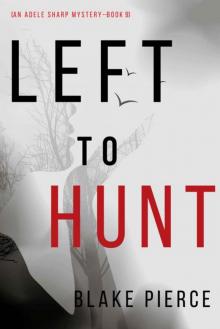 Left to Hunt (An Adele Sharp Mystery—Book Nine)
Left to Hunt (An Adele Sharp Mystery—Book Nine) Left to Kill (An Adele Sharp Mystery—Book Four)
Left to Kill (An Adele Sharp Mystery—Book Four)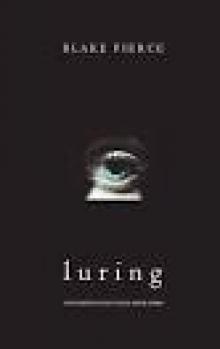 LURING
LURING If She Hid
If She Hid If She Fled
If She Fled Already Gone (A Laura Frost FBI Suspense Thriller—Book 1)
Already Gone (A Laura Frost FBI Suspense Thriller—Book 1) Vengeance in Vienna
Vengeance in Vienna Once Shunned
Once Shunned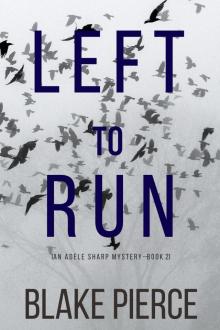 Left To Run
Left To Run Face of Fury (A Zoe Prime Mystery--Book 5)
Face of Fury (A Zoe Prime Mystery--Book 5) Blake Pierce - Kate Wise - 5 - If She Fled
Blake Pierce - Kate Wise - 5 - If She Fled IF SHE RAN
IF SHE RAN Left to Envy (An Adele Sharp Mystery—Book Six)
Left to Envy (An Adele Sharp Mystery—Book Six) Silent Neighbor
Silent Neighbor Her Last Wish (A Rachel Gift FBI Suspense Thriller—Book 1)
Her Last Wish (A Rachel Gift FBI Suspense Thriller—Book 1) Almost Lost
Almost Lost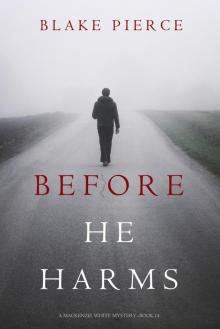 Before He Harms
Before He Harms Murder (and Baklava) (A European Voyage Cozy Mystery—Book 1)
Murder (and Baklava) (A European Voyage Cozy Mystery—Book 1) Left to Vanish (An Adele Sharp Mystery—Book Eight)
Left to Vanish (An Adele Sharp Mystery—Book Eight) THE PERFECT IMAGE
THE PERFECT IMAGE The Perfect Affair (A Jessie Hunt Psychological Suspense Thriller—Book Seven)
The Perfect Affair (A Jessie Hunt Psychological Suspense Thriller—Book Seven) Left To Die
Left To Die BEFORE HE LAPSES
BEFORE HE LAPSES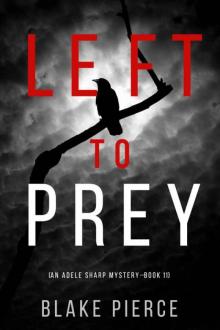 Left to Prey (An Adele Sharp Mystery—Book Eleven)
Left to Prey (An Adele Sharp Mystery—Book Eleven) The Perfect Neighbor (A Jessie Hunt Psychological Suspense Thriller—Book Nine)
The Perfect Neighbor (A Jessie Hunt Psychological Suspense Thriller—Book Nine) Almost Dead
Almost Dead The Perfect Wife
The Perfect Wife The Perfect Smile
The Perfect Smile If She Saw
If She Saw Left To Die (An Adele Sharp Mystery—Book One)
Left To Die (An Adele Sharp Mystery—Book One)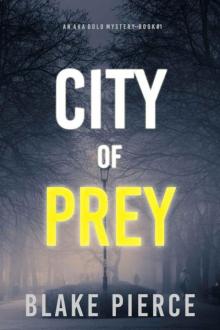 City of Prey: An Ava Gold Mystery (Book 1)
City of Prey: An Ava Gold Mystery (Book 1)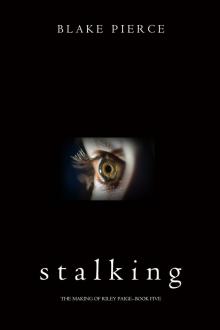 Stalking
Stalking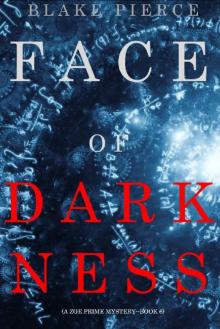 Face of Darkness (A Zoe Prime Mystery—Book 6)
Face of Darkness (A Zoe Prime Mystery—Book 6) The Perfect Mistress (A Jessie Hunt Psychological Suspense Thriller—Book Fifteen)
The Perfect Mistress (A Jessie Hunt Psychological Suspense Thriller—Book Fifteen) Girl, Vanished (An Ella Dark FBI Suspense Thriller—Book 5)
Girl, Vanished (An Ella Dark FBI Suspense Thriller—Book 5) The Perfect Block
The Perfect Block Left to Fear (An Adele Sharp Mystery—Book Ten)
Left to Fear (An Adele Sharp Mystery—Book Ten) Almost Gone (The Au Pair—Book One)
Almost Gone (The Au Pair—Book One) The Perfect Facade (A Jessie Hunt Psychological Suspense Thriller—Book Twelve)
The Perfect Facade (A Jessie Hunt Psychological Suspense Thriller—Book Twelve) The Perfect Affair
The Perfect Affair Once Chosen (A Riley Paige Mystery—Book 17)
Once Chosen (A Riley Paige Mystery—Book 17) Girl, Alone (An Ella Dark FBI Suspense Thriller—Book 1)
Girl, Alone (An Ella Dark FBI Suspense Thriller—Book 1)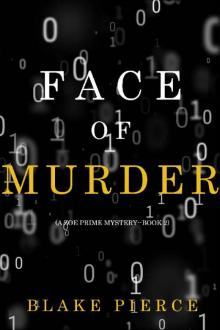 Face of Murder (A Zoe Prime Mystery—Book 2)
Face of Murder (A Zoe Prime Mystery—Book 2) The Perfect Mistress
The Perfect Mistress Crime (and Lager) (A European Voyage Cozy Mystery—Book 3)
Crime (and Lager) (A European Voyage Cozy Mystery—Book 3)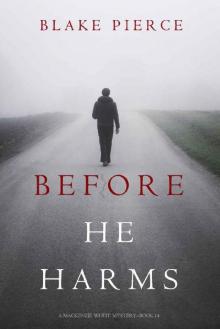 Before He Harms (A Mackenzie White Mystery—Book 14)
Before He Harms (A Mackenzie White Mystery—Book 14)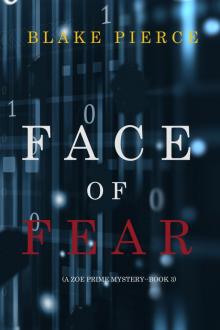 Face of Fear
Face of Fear Left to Murder (An Adele Sharp Mystery—Book Five)
Left to Murder (An Adele Sharp Mystery—Book Five) Left to Vanish
Left to Vanish The Perfect Secret (A Jessie Hunt Psychological Suspense Thriller—Book Eleven)
The Perfect Secret (A Jessie Hunt Psychological Suspense Thriller—Book Eleven) The Perfect Deceit (A Jessie Hunt Psychological Suspense Thriller—Book Fourteen)
The Perfect Deceit (A Jessie Hunt Psychological Suspense Thriller—Book Fourteen)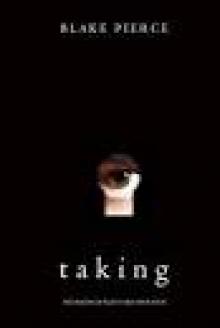 Blake Pierce - The Making of Riley Paige - 4 - Taking
Blake Pierce - The Making of Riley Paige - 4 - Taking Death (and Apple Strudel) (A European Voyage Cozy Mystery—Book 2)
Death (and Apple Strudel) (A European Voyage Cozy Mystery—Book 2) THE PERFECT HOUSE
THE PERFECT HOUSE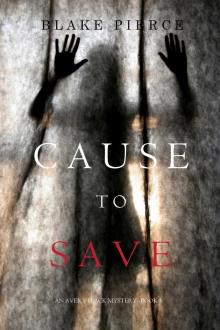 Cause to Save
Cause to Save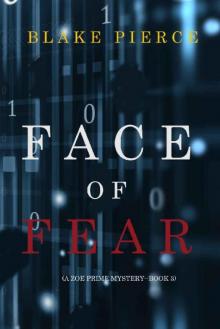 Face of Fear (A Zoe Prime Mystery—Book 3)
Face of Fear (A Zoe Prime Mystery—Book 3)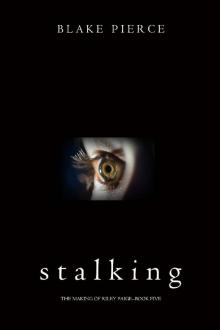 Stalking (The Making of Riley Paige—Book 5)
Stalking (The Making of Riley Paige—Book 5) A Neighbor's Lie
A Neighbor's Lie The Perfect Neighbor
The Perfect Neighbor Once Dormant
Once Dormant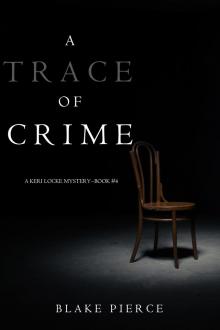 A Trace of Crime
A Trace of Crime CAUSE TO DREAD
CAUSE TO DREAD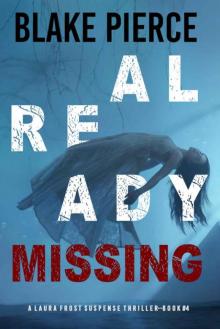 Already Missing (A Laura Frost FBI Suspense Thriller—Book 4)
Already Missing (A Laura Frost FBI Suspense Thriller—Book 4) Waiting
Waiting If She Knew
If She Knew If She Feared (A Kate Wise Mystery—Book 6)
If She Feared (A Kate Wise Mystery—Book 6)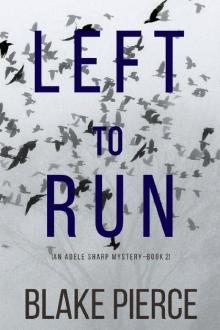 Left To Run (An Adele Sharp Mystery—Book Two)
Left To Run (An Adele Sharp Mystery—Book Two)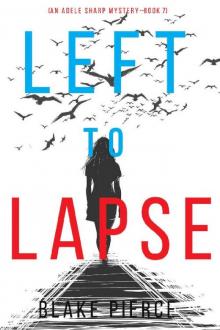 Left to Lapse (An Adele Sharp Mystery—Book Seven)
Left to Lapse (An Adele Sharp Mystery—Book Seven) If She Hid (A Kate Wise Mystery—Book 4)
If She Hid (A Kate Wise Mystery—Book 4) The Perfect Alibi (A Jessie Hunt Psychological Suspense Thriller—Book Eight)
The Perfect Alibi (A Jessie Hunt Psychological Suspense Thriller—Book Eight)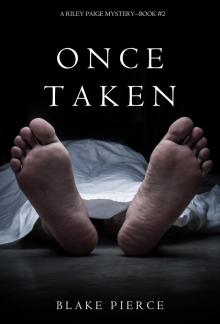 Once Taken
Once Taken Before He Envies
Before He Envies Before He Sins
Before He Sins Mackenzie White 07-Before He Sins
Mackenzie White 07-Before He Sins ONCE BOUND
ONCE BOUND Once Buried
Once Buried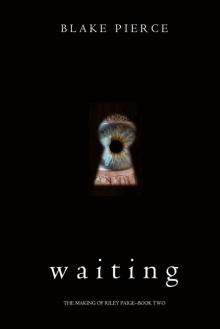 Waiting (The Making of Riley Paige—Book 2)
Waiting (The Making of Riley Paige—Book 2) Riley Paige 11-Once Buried
Riley Paige 11-Once Buried Once Forsaken (A Riley Paige Mystery—Book 7)
Once Forsaken (A Riley Paige Mystery—Book 7) Once Stalked (A Riley Paige Mystery—Book 9)
Once Stalked (A Riley Paige Mystery—Book 9) The Perfect Disguise (A Jessie Hunt Psychological Suspense Thriller—Book Ten)
The Perfect Disguise (A Jessie Hunt Psychological Suspense Thriller—Book Ten)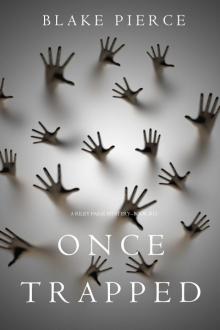 ONCE TRAPPED
ONCE TRAPPED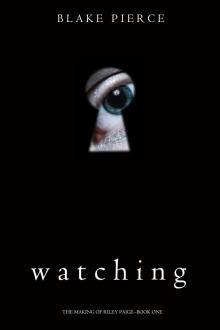 Watching
Watching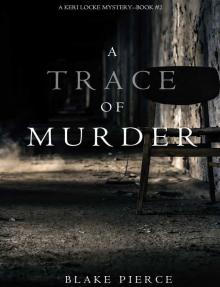 Keri Locke 02-A Trace of Muder
Keri Locke 02-A Trace of Muder Cause to Hide
Cause to Hide Once Hunted
Once Hunted Cause to Kill (An Avery Black Mystery—Book 1)
Cause to Kill (An Avery Black Mystery—Book 1) Before He Preys
Before He Preys Once Pined
Once Pined A Trace of Hope
A Trace of Hope Once Craved (a Riley Paige Mystery--Book #3)
Once Craved (a Riley Paige Mystery--Book #3) Once Lured
Once Lured Before He Sees (A Mackenzie White Mystery—Book 2)
Before He Sees (A Mackenzie White Mystery—Book 2) Before he Kills (A Mackenzie White Mystery—Book 1)
Before he Kills (A Mackenzie White Mystery—Book 1)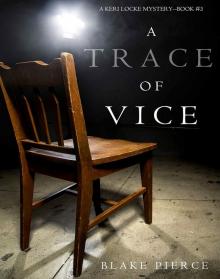 Keri Locke 03-A Trace of Vice
Keri Locke 03-A Trace of Vice Once Cold
Once Cold ONCE LOST
ONCE LOST Before He Takes
Before He Takes Before He Covets (A Mackenzie White Mystery—Book 3)
Before He Covets (A Mackenzie White Mystery—Book 3) BEFORE HE NEEDS
BEFORE HE NEEDS